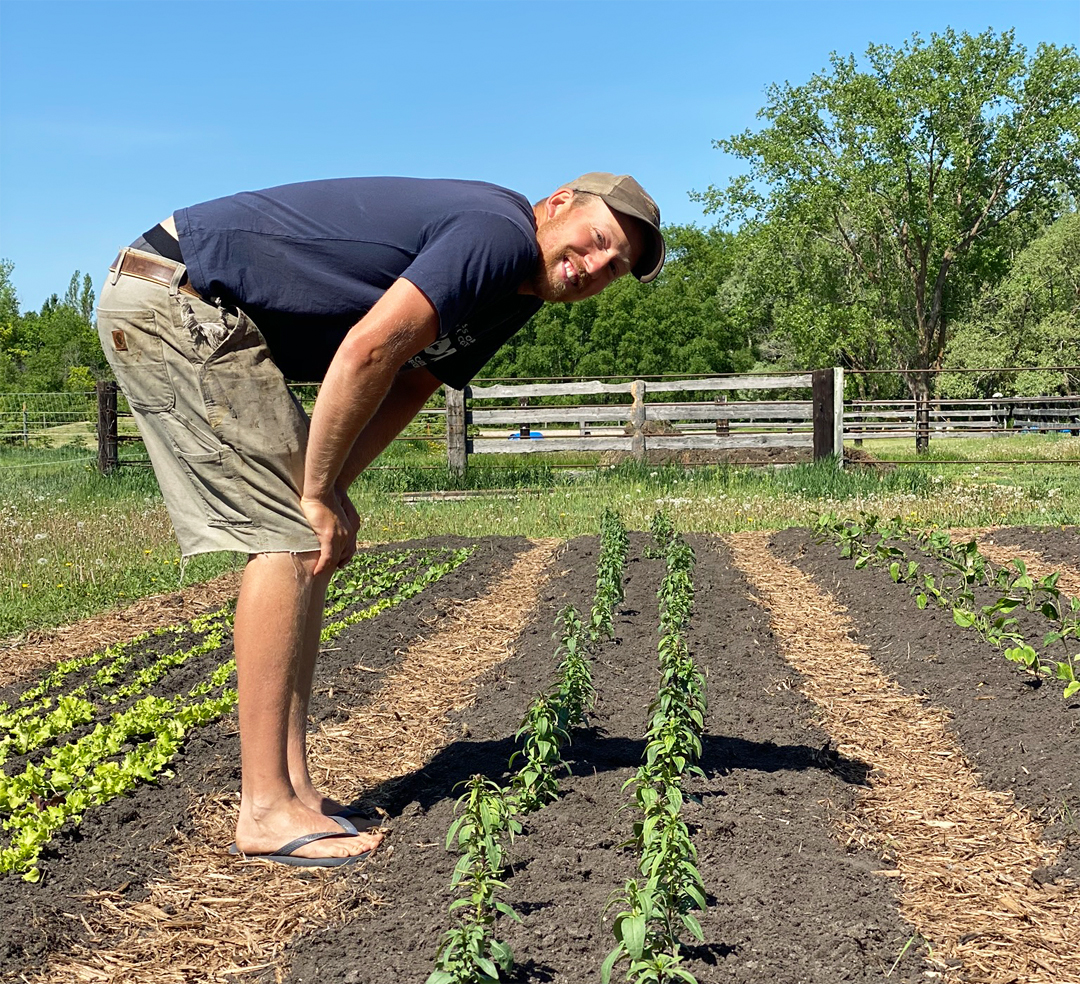
Proud Arctic Organics founder Riley Friesen doing his “Jack and the Beanstalk” impression. Vanessa Desorcy photo.
In these uncertain times it’s nice to be sure about something. The plants are growing!
Arctic Organics is entering its second spring and Riley Friesen, my brother-in-law, is eager to see the fruits of his careful planning. Pun intended. If you have travelled to our ecolodges over the past 14 years, you may have seen Riley working in maintenance, as a head chef, or as a bear guard for film crews. Now he builds custom furniture, he’s married to Mike and Jeanne Reimer’s second daughter Karli (my sister), they have three children and he’s building an organic produce empire on the family acreage.
New planting rows are being dug and groomed to be ready for transplanting the sprouts of tomatoes, peppers, brassicas, flowers and more. When I enter the greenhouse I’m greeted by rows of different plants, a sweat inducing heat and humidity, and one lone tree — a grapefruit tree, which I quickly learn has long camouflaged thorns waiting to protect its fruit. I also learn that the younger the citrus trees are, the more thorns they have. The thorns protect them from predators.
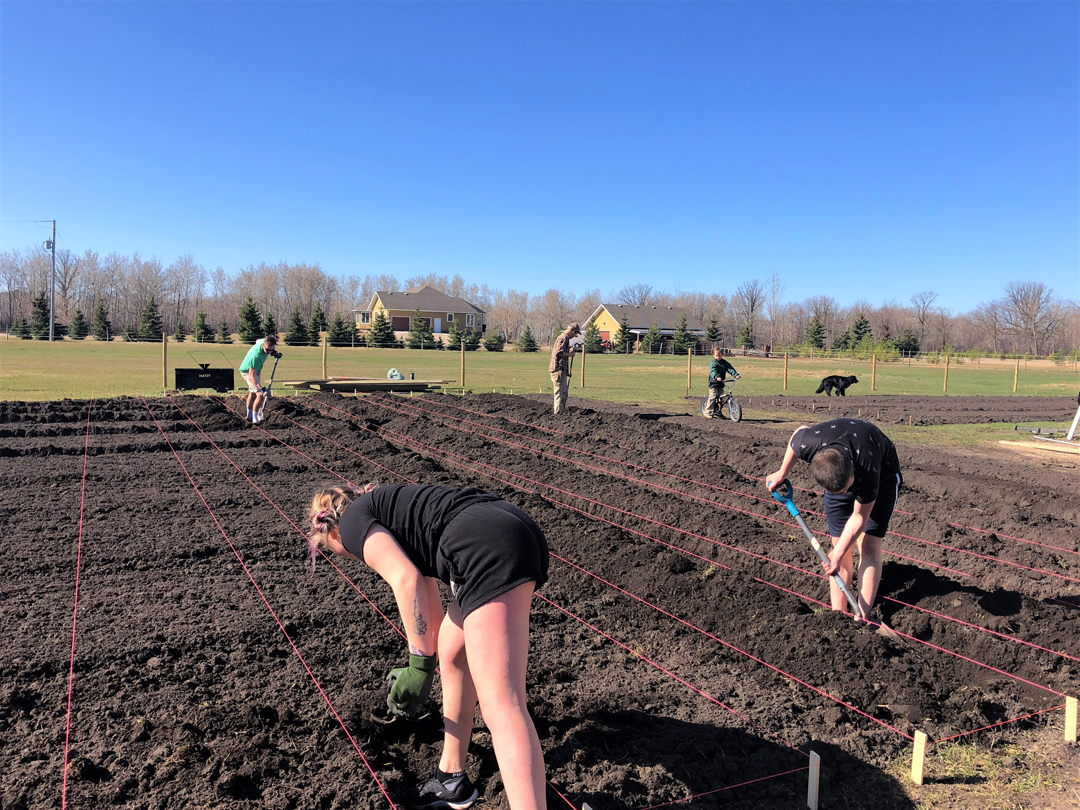
Prepping plant beds at Arctic Organics.
In the short time since I left my office desk and have been helping Riley, I’ve learned a lot about what it takes to be a self-made horticulturist. Each plant species has different sensitivities, preferences and friends with which they grow better alongside. For example, the tomatoes and peppers will be planted in the poly caterpillar tunnel, extending their growing season and allowing for drip irrigation. Tomatoes are very water sensitive, which seems strange since they’re mostly water, but too much exposure to moisture will cause them to split.
Riley’s eldest son, Ezra, is nearing his sixth birthday and follows him like a shadow. I asked him if he comes out here every day and he replied, “Yes, it’s how I can learn how to work.” My heart melts. I’m so proud of this kid, handing his dad every tool and using his bike to race off for more supplies. It’s a version of homeschool a lot of kids aren’t fortunate to have. This morning’s lesson with his mom was on the human body, and as he digs into the dirt he is talking nonstop about the body’s structures, a veritable sponge for information.
With the concentration required for an engineering exam, Ezra helps by pressing the ‘Up’ button for the hydraulic dump trailer. We are spreading mulch for the new lines of fruit trees going in the ground shortly. It feels freeing to work outside during this pandemic, though I’m careful to maintain the six feet distance. The fresh air, listening to the birds and wind, smelling the shredded wood as we spread it over the ground, it all gives me a humbling sense of purpose. And each step is critical for successful growth.
Melons, squashes, broccoli, and cabbage have already been planted. Riley is doing succession planting, so every Wednesday and Friday are planting days. This staggered planting plan ensures that during harvest time not everything will be ready at once, so nothing will overripen before it’s picked.
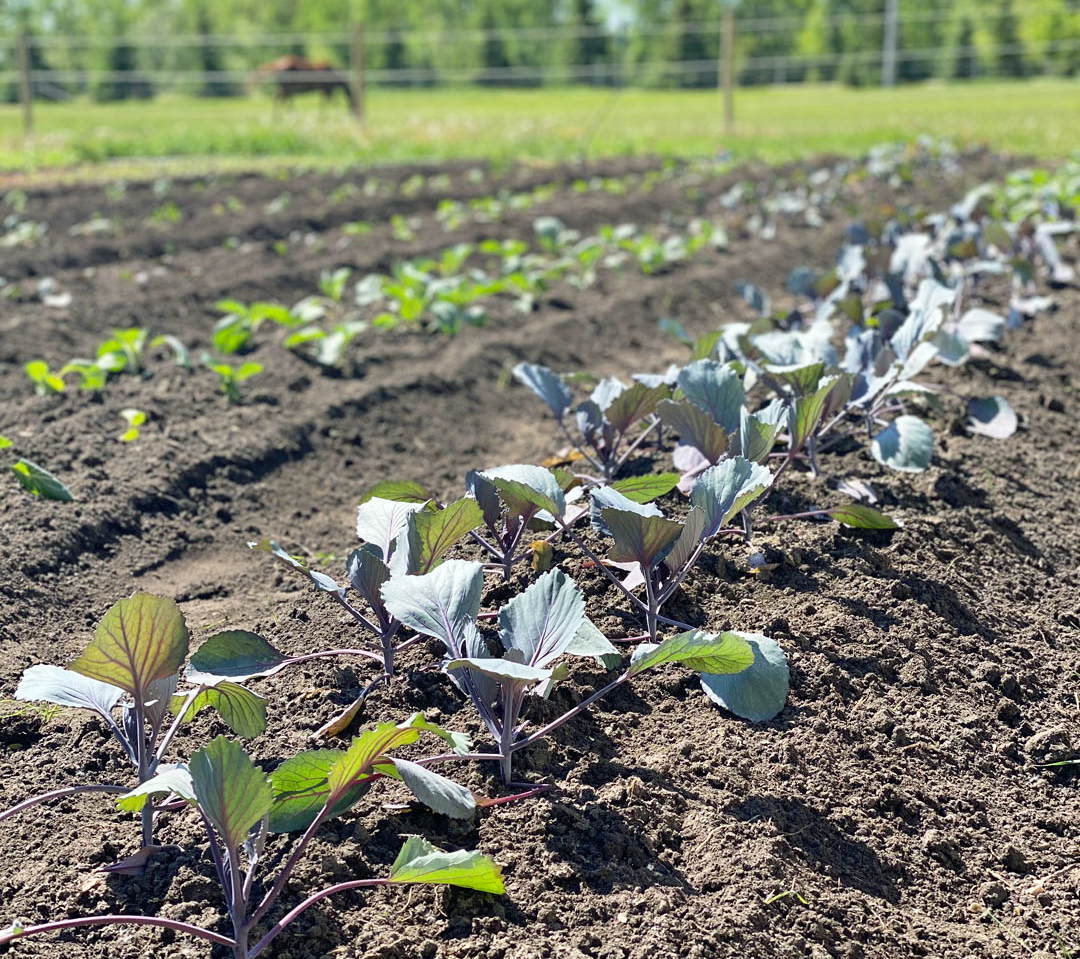
A good healthy start for Arctic Organics! Vanessa Desorcy photo.
Arctic Organics is set up to help grace the tables at our ecolodges with fresh produce while also increasing our commitment to sustainability. We’ve planted most of the fruit trees and shrubs in the front orchard, but unfortunately, a shortage in fruit trees delivered to the nursery means we won’t reach the capacity we were hoping for this year. The fruit trees we do have however, are already starting to bloom, and that’s a beautiful sight!
Right now, we are focused on prepping the beds and transplanting all the smaller plants that have been safe inside the greenhouse. As I spread organic compost onto the planting beds, I am fascinated to learn how hot it becomes while decomposing. I can barely hold my hand in it for five seconds before it becomes uncomfortable. At this stage, the compost has a smoky coffee and dirt smell that is quite tolerable.
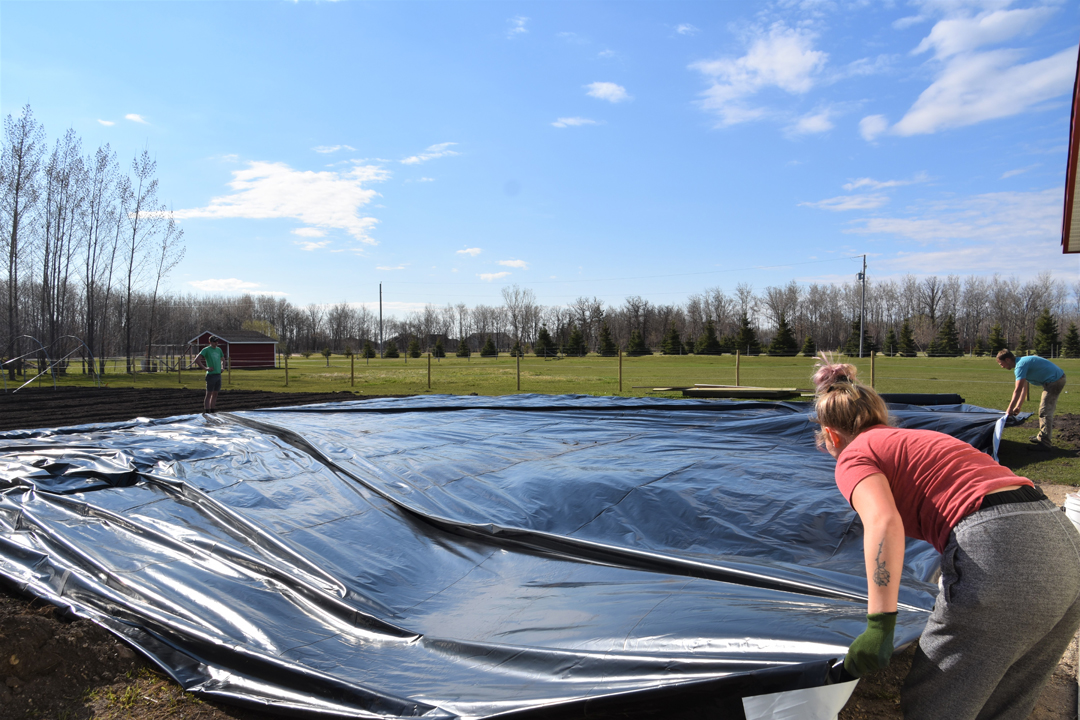
Removing the tarp. Weeds begone!
After we’ve rolled back what I call the “smothering tarp” — which has been weighting down the beds and essentially cooking and suffocating any weeds that may have been germinating — we then go through raking and digging up any grass root clumps and fill the walkways between the beds with mulch. Our efforts at this stage will hopefully ensure less work in the long term. While many people have flat gardens that they till up every year, these raised rows will hopefully not require tilling and hours of weeding each planting season.
While everything is starting to bloom, the real vegetables and “fruits” of our labour will not be ready for a while. There is still plenty of seeding, transplanting, watering and other plant care required to keep the orchard humming.
Despite all that’s left to do, it brings a smile to my face each morning when I see the cherry and apple blossoms in full bloom, knowing that there are hundreds of bees nestled among them that will soon wake up and start their days’ work alongside us.
Nature makes good company.

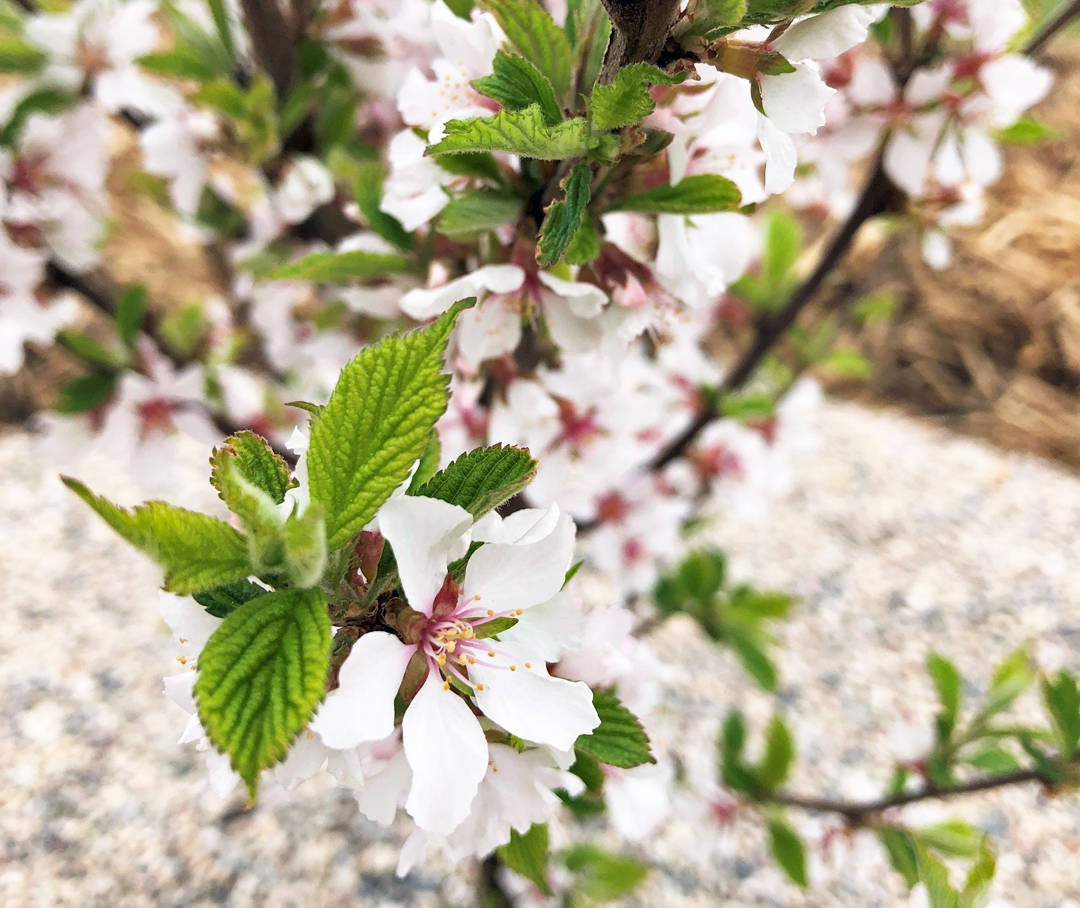






Wow! That’s an impressive farm…nice work everyone!
Thank you Jad! Hope all is well with you!